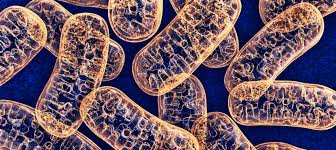Animals could have the ability to make use of their own muscles to obtain water when there is shortage of water, claims a new research published recently in the Royal Society journal Proceedings of the Royal Society B: Biological Sciences.
"We know about the importance of fat reserves to fuel the energetic costs of reproduction. But what about water? Our study shows that during reproduction, muscle metabolism is linked to the water requirements of developing offspring. Fat is only about 10 percent water, whereas muscle is closer to 75 percent, so burning muscle will release extra water," George Brusch IV, lead investigator for the project and doctoral student at Arizona State University, said in a press release.
"From an evolutionary perspective, the concept of capital breeding -- or using stored resources to fuel reproduction -- is currently restricted to energetic needs. We propose that this should extend to a broader, multi-resource strategy that also includes water allocation," said Brusch.
Researchers have concluded that an important role is played by muscles is satisfaction of water needs of the body where there is no water in animals by studying the impact on the reproductive efforts because of water deprivation on female Children's pythons.
The Children's pythons is a medium-sized snake which ha the tende3ncy to reproduce in the dry summer season in Australia when most of the natural sources of water dries up.
"Female Children's pythons can change how they use internal resources based on limitations in the environment," said Brusch.
According to the researcher obtaining an understanding of the exact manner in which animals are able to deal with shortage of water and other natural resources will enable scientists to also estimate the impact on animals in the future by climate change impacts.
Pregnant Children's pythons were paired with non-reproductive females of similar sizes in the study. Access to water was made available to only half of the pairs of snakes during the experiment that lasted for the three weeks when the snakes were pregnant.
Nothing is eaten during pregnancy by reproductive female sakes found both in the wild as well as those in the lab, during their pregnancy period and depend on their internal reserves for nutrition and other body requirements such as fat and muscle.
The by-products of burning fat and muscle such as ketones and uric acid were then measured by the scientists. They also ascertained the effect on the eggs and the clutch sizes of the snakes.
The outcome of the experiments showed that more muscle compared to their internal fats were burned by the animals in absence of water in order to fulfill their body needs for water. Additionally, the scientists also found that the number of eggs laid by the snakes without water were similar to other snakes with water access, and the eggs produced by them were lighter and had a thinner shell.
The researchers have suggested that using muscle as a water store may be a widespread phenomenon because most animals require steady access to water for survival.
(Source:www.xinhuanet.com)
"We know about the importance of fat reserves to fuel the energetic costs of reproduction. But what about water? Our study shows that during reproduction, muscle metabolism is linked to the water requirements of developing offspring. Fat is only about 10 percent water, whereas muscle is closer to 75 percent, so burning muscle will release extra water," George Brusch IV, lead investigator for the project and doctoral student at Arizona State University, said in a press release.
"From an evolutionary perspective, the concept of capital breeding -- or using stored resources to fuel reproduction -- is currently restricted to energetic needs. We propose that this should extend to a broader, multi-resource strategy that also includes water allocation," said Brusch.
Researchers have concluded that an important role is played by muscles is satisfaction of water needs of the body where there is no water in animals by studying the impact on the reproductive efforts because of water deprivation on female Children's pythons.
The Children's pythons is a medium-sized snake which ha the tende3ncy to reproduce in the dry summer season in Australia when most of the natural sources of water dries up.
"Female Children's pythons can change how they use internal resources based on limitations in the environment," said Brusch.
According to the researcher obtaining an understanding of the exact manner in which animals are able to deal with shortage of water and other natural resources will enable scientists to also estimate the impact on animals in the future by climate change impacts.
Pregnant Children's pythons were paired with non-reproductive females of similar sizes in the study. Access to water was made available to only half of the pairs of snakes during the experiment that lasted for the three weeks when the snakes were pregnant.
Nothing is eaten during pregnancy by reproductive female sakes found both in the wild as well as those in the lab, during their pregnancy period and depend on their internal reserves for nutrition and other body requirements such as fat and muscle.
The by-products of burning fat and muscle such as ketones and uric acid were then measured by the scientists. They also ascertained the effect on the eggs and the clutch sizes of the snakes.
The outcome of the experiments showed that more muscle compared to their internal fats were burned by the animals in absence of water in order to fulfill their body needs for water. Additionally, the scientists also found that the number of eggs laid by the snakes without water were similar to other snakes with water access, and the eggs produced by them were lighter and had a thinner shell.
The researchers have suggested that using muscle as a water store may be a widespread phenomenon because most animals require steady access to water for survival.
(Source:www.xinhuanet.com)






